Last week Faranak Amidi, a BBC World Service presenter and women's affairs reporter for BBC Persian, posted fresh pictures of herself in sports attire, posing and showing off her muscles. In the text that accompanied the pictures, she wrote: “On the cusp of turning 43, I feel I am as strong as I have ever been. I don’t use lighting and I don’t edit my pictures and, well, I’m not a bodybuilder either. But I am happy with myself.”
The post was simple, uplifting and unretouched, proudly showing the wrinkles on her skin and cellulite. But Amidi was then attacked on Twitter by individual misogynists who called her “ugly” and reproached her for sharing it. Instead of being cowed, Amidi posted more unedited pictures of herself, and replied to the critics.
Iranian Women’s Bodies Online: A Much-Needed Antidote?
Amidi is a feminist and has fought a long battle against women being shamed for how they look. She told IranWire she had known the pictures would be critiqued and insulted. “I know I can withstand these attacks. Not that they didn’t trouble me, but I will find a way to deal with it.
“Why am doing this? I am doing this because the bodies of us women, and of queer persons, have been suppressed. In a patriarchal society, a body other than a man’s is considered a threat. Our bodies as women carry the weight of societal chastity and, as a result, the display of a woman’s body leads to an explosion of anger, and repressed obsessions. This is why I have no doubt women’s liberation is achieved through liberating their bodies.”
Some of those who weighed in online claimed Amidi was reducing the broader fight for equality to the display of women’s bodies. “There are many who go on that I’m vulgarizing feminism, or I’m reducing everything to the body and its display,” Amidi said. “Not so. As it happens, it’s the patriarchy that has reduced women to their bodies, and that uses this to suppress, ridicule and humiliate anyone who liberates her body.”
Amidi says her three personal weapons of choice in the fight are “my pen, humor and my body”. “Of course,” she added, “you pay a price for this form of protest.”
There is a hidden, secondary benefit to women being more open about their bodies online, Amidi said. “One the 1990s [Iranian] supermodels, who’s now 50-something, wrote that she was constantly searching for the bodies of others age looked, for a picture. But she couldn’t find one. So she scolded herself because she thought she was the only one whose body had changed due to age.
“This exactly what I want to demonstrate. In our society, nudity is a demerit and many people, especially women, have not seen any ordinary people’s bodies save for their own. Scientific pictures and even drawings have specific parameters. Some are not even aware that breast shape differs. They are strangers to their own bodies, even at this level.”
A Misogynistic Blast From the Past
During the backlash to Farank Amidi’s pictures, one Twitter user, defending her, reproduced cartoons from the first wave of feminism when women were fighting for the right to vote. In most of these cartoons, women are portrayed as scolds and twisted, embittered creatures who had never attracted a man.
The same delusion reared its head again in response to women’s protests against mandatory veiling in Iran. Amiri previously wrote a report for the BBC World Service about Vida Movahed, who in early 2018, sparked a new protest movement after she stood on a utility box on Enghelab (Revolution) Street in Tehran, waving her white headscarf.
“Perhaps you remember Vida Movahed’s brilliant performance,” Amidi says. “Even then, there were men who said these women were searching for a husband, because if a man had paid them attention they wouldn’t be doing these things. In that report, I’d also mentioned these cartoons. Whenever a woman demands her rights, the patriarchy portrays her as frustrated because men have not paid her attention. After so many years, it’s still going strong.” This in turn, she says, is borne out of men defining women’s identities in relation to them, rather than in their own right. “When it comes to the most hideous sexual insults to women on social media, and the unmistakable misogyny in literature, there are still those who try to justify it.”
Learning From Each Other
Asked how she tolerates the nastiness herself, Amidi said: “Somehow, one develops a defense mechanism. But the truth is the empathy and affection I receive on social media is far greater than the insults and ridicule. I constantly speak to women who tell me about the wounds inflicted on them. We learn from each other, so much so it allows me to answer the questions I receive.”
Farank Amidi believes Iranian society is resistant to change, and exploits old beliefs to isolate woman and keep them down. “To change this situation, we have no option but to celebrate the little steps Iranian feminism has taken. We face an all-powerful judiciary and Iranian feminists have to force the regime to pay a higher price for it.”
visit the accountability section
In this section of Iran Wire, you can contact the officials and launch your campaign for various problems





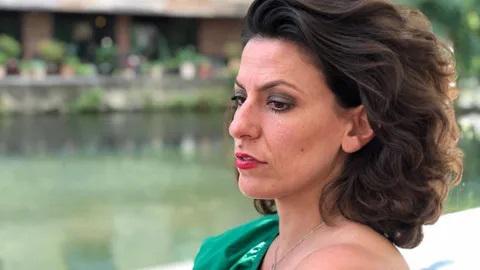
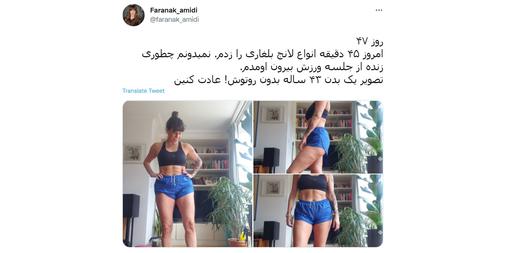
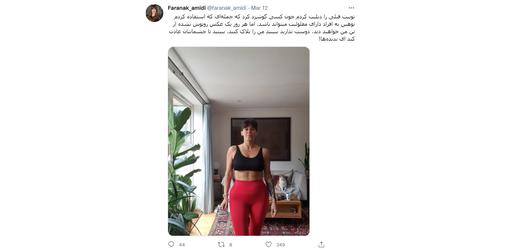








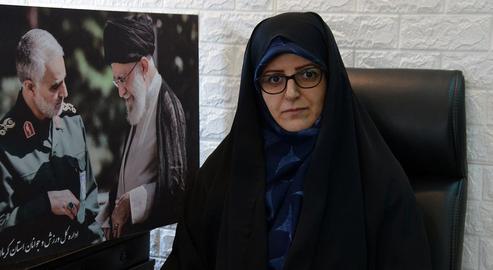









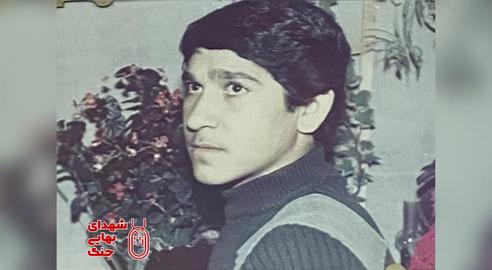
comments